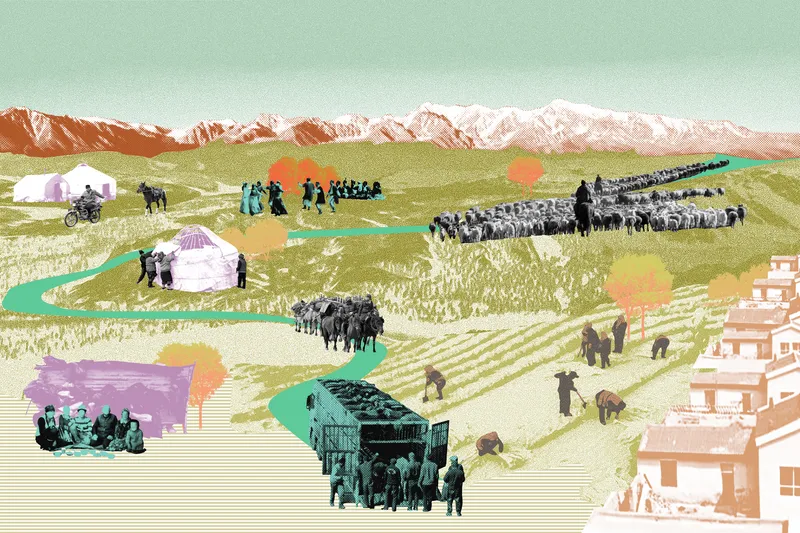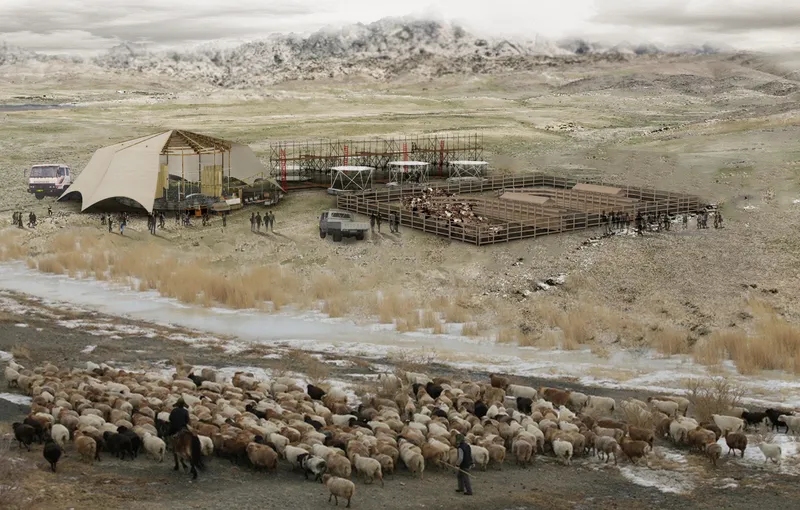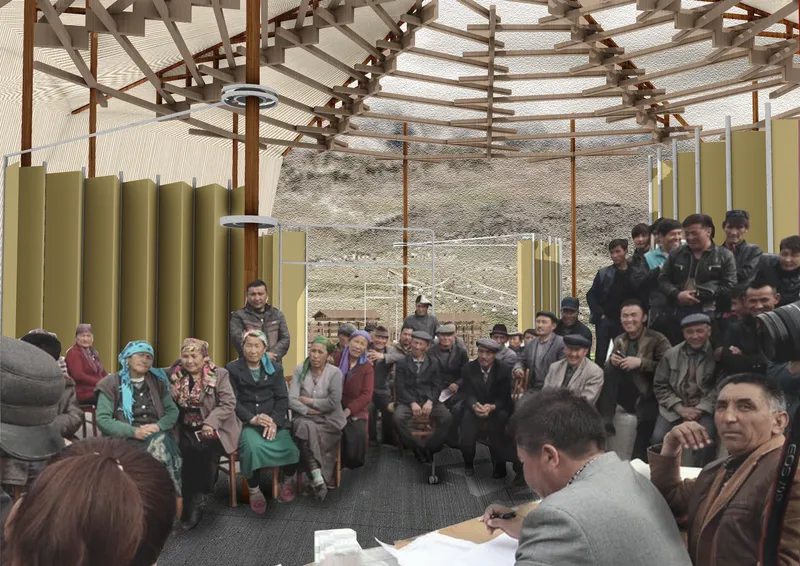Kazakh society in Xinjiang, China, had a nomadic knowledge system as its cultural core and means of survival. Nowadays, these have been marginalised or even disintegrated, but this change does not originate from itself, but is the result of modern state power structures.
This project focuses on the social interaction effects of rotational pastoralism and the mechanisms by which it influences the rotational pastoral behaviour of individual herders from the perspectives of China’s social policy and the natural environment; and explores how to effectively balance the relationship between herders-livestock and the natural environment. We will analyse the nomadic lifestyle of the Kazakhs, protect and pass on the unique culture of this ethnic group, provide effective help and emergency strategies for this group, and explore a better understanding of the future of nomadic architecture.
As China’s urbanisation accelerates, the traditional nomadic phenomenon is shrinking or even disappearing. Given that pastoralist communities in Kazakhstan have long been neglected, what can be done to maximize the preservation of their familiar and free way of life and minimize the discomfort of adaptation?





